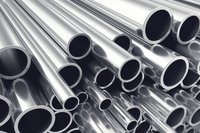The paper and forestry products industry is a mix of varied industries with specific end markets rather than one single market. As such, investors can gain exposure to a wide range of investment themes.
For example, there's the growth opportunity in transport packaging driven by surging e-commerce demand. Meanwhile, demand for consumer packaging and tissue offers investors a solid and stable way to get exposure to global economic growth. Despite the decline in graphic paper (newsprint and writing paper) and other areas, the overall industry is still growing. So, let's look at the top paper stocks and what makes them attractive for investors.
The leading paper companies to invest in
The following table outlines a few of the leading paper and lumber stocks you can buy stock in.
| Company | Ticker | Market Cap | Description |
|---|---|---|---|
| International Paper | (NYSE:IP) | $22.3 billion | Containerboard, fluff, market, and specialty pulp. |
| Suzano | (NYSE:SUZ) | $14 billion | Major hardwood pulp (eucalyptus) and paper producer in Brazil. |
| Schweitzer-Maudit | (NYSE:SWM) | $1.1 billion | Resin-based products for use in a variety of end markets, cigarette papers, and tobacco products. |
| Resolute Forest Products | (NYSE:RFP) | $946 million | Paper, market pulp, wood products, and tissue. |
| Clearwater Paper Corporation | (NYSE:CLW) | $607 million | Private-label tissue products and paperboard for packaging. |
| Mercer International | (NASDAQ:MERC) | $813 million | Market pulp and wood products. |
International Paper
Following the recent spinoff of its printing papers segment (uncoated papers used in copiers, desktop printers, and digital imaging) into a new company, Sylvamo (SLVM 2.54%), International Paper is now focused on two core businesses.
The industrial packaging segment (around 87% of revenue) manufactures linerboard, with 80% of its production converted into corrugated boxes and packaging. As such, International Paper is the largest manufacturer of containerboard in the U.S.
The global cellulose fibers segment (around 13% of revenue) produces fluff, market, and specialty pulp. As the name suggests, fluff pulp is used to make baby diapers, feminine care, and other hygiene products. Market pulp goes into paper and tissue products, and specialty pulp goes into a range of end markets such as textiles, construction, and paints.
International Paper is now a company focused on corrugated packaging, mainly used in food and consumer goods packaging and the higher-growth market of e-commerce shipping.
Suzano
This Brazilian pulp and paper company produces eucalyptus hardwood pulp for its paper products and sells pulp to other paper manufacturers. Hardwood pulp tends to have shorter fibers, making it suitable for printing and writing paper, tissue paper, and specialty paper.
Suzano is responsible for 40% of the printing and writing paper produced in Brazil and 25% of the paperboard. While Suzano's end markets, notably printing and writing paper, may not be the most attractive in the industry, they are still growing.
The company’s management believes that eucalyptus pulp is growing as a share of hardwood pulp worldwide. Therefore, the long-term case for the stock rests on the cost-effectiveness of producing eucalyptus pulp in Brazil, which has a shorter growth cycle and a higher yield than other hardwood trees. According to SEC filings, "... we believe that we are among Brazilian pulp producers that have the lowest production cost in the global market."
Schweitzer-Maudit
A 1995 spinoff from Kimberly-Clark (KMB 5.72%), Schweitzer-Maudit will likely appeal to value investors who buy into its plans to transform itself. The case for buying the stocks rests on the idea that earnings and cash flow from the engineered products (tobacco papers and reconstituted tobacco) will help the company with its strategic transformation strategy.
The idea is to diversify the company from the challenged tobacco industry by acquiring resin-based product businesses in specialty industries. Consequently, Schweitzer-Maudit acquired and built a collection of precision-engineered performance businesses focused on healthcare and industrial end markets.
However, given that the stock tends to trade on a low valuation (and comes with a hefty dividend yield) due to its exposure to tobacco paper, it could be that investors are overlooking the potential for the strategy to work over the long term.

Resolute Forest Products
This company owns 40 facilities in Canada and the U.S. It offers a range of forestry products, including paper (newsprint and specialty paper), market pulp (8% of total North American capacity), wood products (construction-grade lumber), and tissue.
Its core end market is newsprint, with Resolute owning 9% of worldwide capacity for newsprint and 44% of North American capacity. Given the structural decline in the newsprint industry -- due to the growth of online media -- management is focused on enhancing its pulp and wood products businesses.
Indeed, pulp and wood products together made up 40% of sales in 2016, with paper contributing 57%. However, as of 2020, those percentages shifted to 60% and 33%, respectively. As a result, investors will be hoping the strategy of shifting to pulp and wood products will allow Resolute to fully offset declining sales from its paper.
Clearwater Paper Corporation
Unlike Schweitzer-Maudit and Resolute Forest Products, Clearwater doesn't have structurally challenged end markets. The company operates two segments: pulp and paperboard and consumer products, which produces and sells private-label tissue to large national retailers. Its long-term growth depends mainly on benefiting from the trend of private labels increasing market share as compared to branded products.
The pulp and paperboard segment produces bleached paperboards used to make various consumer products such as cups and plates, folding cartons, liquid containers, and packaging. Clearwater primarily sells to packaging companies in the U.S.
As such, Clearwater offers investors a company with relatively stable end markets, although it tends to trade on somewhat higher valuations to reflect that.
Mercer International
Mercer International also operates two segments: pulp and wood products. Starting with pulp, Mercer is the second-largest producer of northern bleached softwood kraft (NBSK, the industry’s pulp benchmark) in the world, just ahead of International Paper. In contrast with Suzano's hardwood, softwood pulp tends to have long fibers and is used in products that need greater strength such as newsprint, paperboard, catalogs, and lightweight coated paper.
With operating assets in Canada, Germany, and Australia, and with 88% of its pulp sales made globally, Mercer truly is international.
The wood products segment manufactures and sells lumber products, with its primary end markets in the U.S. and Germany.
The company offers investors a relatively safe way to play the cyclicality of the pulp market. As with all commodities and material stocks, pricing depends on the intersection of supply and demand.
Related investing topics
Investing in paper stocks
As this short introduction has outlined, the industry is a mix of various end markets. Some, such as cigarette paper, newsprint, and writing paper, are in decline. Others, like corrugated boxes for e-commerce packaging, are in growth mode. Still others, such as tissue and packaging in general, are markets growing in line with the economy.
Many of the stocks in the industry trade on very low valuations that reflect the mature and low-growth nature of the industry. Therefore, the sector will attract value investors looking for hidden gems in the bargain basement of the investment world.



















